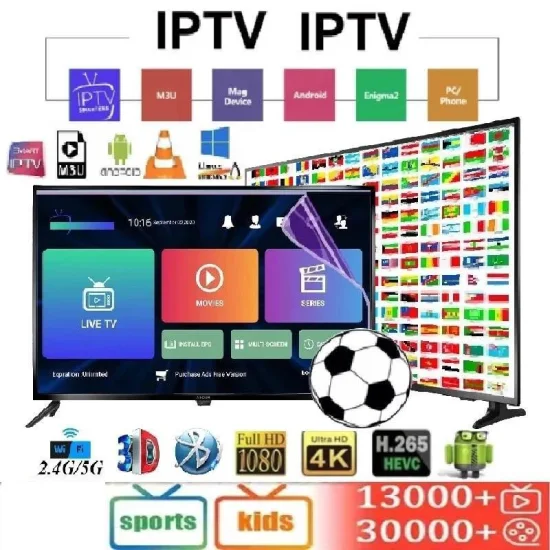Release the Power of IPTV: Costs IPTV Subscription Solutions Available Now
Release the Power of IPTV: Costs IPTV Subscription Solutions Available Now
Blog Article
The Significance of IPTV: Revolutionizing Television Consumption and Entertainment
The landscape of television intake has experienced a significant makeover with the development of Net Protocol Tv (IPTV) As we witness this change in the direction of a much more vibrant and tailored technique to entertainment, it comes to be significantly important to check out the effects and possibility of IPTV in shaping our watching habits and the future of tv.
The Development of Tv Watching

With functions like referrals based on watching history and the capacity to binge-watch whole seasons, tv watching has become much more customized to individual choices. Overall, the evolution of television viewing has actually ushered in a new period of entertainment that is vibrant, interesting, and user-centric.
Advantages of IPTV Over Cord
What identifies IPTV from conventional cord services in terms of audience experience and web content distribution efficiency? IPTV provides several benefits over cable tv, making it a recommended choice for lots of consumers.
Furthermore, IPTV supplies better web content distribution efficiency compared to cord services. Overall, the benefits of IPTV over cable, including adaptability, interactivity, and boosted web content shipment efficiency, highlight its value in changing tv usage.

Interruption of Traditional Broadcasting
Amid the electronic change of the media landscape, conventional broadcasting faces unmatched interruption from emerging modern technologies and changing audience preferences. The rise of Web Procedure Tv (IPTV) has dramatically affected standard broadcasting techniques. IPTV allows customers to accessibility content online, bypassing the need for conventional cable television or satellite services. This change has caused a decline in conventional broadcasting viewership as more customers select the benefit and adaptability used by IPTV solutions.
Additionally, the on-demand nature of IPTV services has actually tested the set up shows version of conventional broadcasting. Customers currently have the freedom to pick what they wish to watch and when they wish to see it, making standard broadcasting routines much less attractive. Furthermore, IPTV solutions often provide a wider series of web content options, including global channels and unique programming, additional enticing customers far from standard broadcasting platforms. As a result, typical broadcasters are facing the immediate need to adjust and progress to stay competitive in this rapidly altering media landscape.
Effect on Entertainment Sector
The development of Net Method Television (IPTV) has not only interrupted standard broadcasting however has likewise exceptionally affected the show business by improving how material is taken in and distributed. IPTV subscription. IPTV has transformed the way home entertainment is supplied to customers, supplying a variety of on-demand material and customized seeing experiences. This shift has actually led to increased competitors amongst content companies, pushing them to create high-grade, interesting content to draw in and preserve customers

Future Trends in IPTV Modern Technology
With the rapid innovation of modern technology, the future of IPTV holds significant assurance in transforming the way tv web content is delivered and taken in. One significant trend forming the future of IPTV is the combination of expert system (AI) and device understanding algorithms. These technologies allow IPTV systems to provide customized suggestions based upon customer choices, find out here now viewing practices, and demographics, improving the total watching experience. Furthermore, innovations in video compression techniques such as High Efficiency Video Coding (HEVC) and upcoming requirements like Versatile Video clip Coding (VVC) imp source are established to boost streaming top quality while decreasing data transfer demands.
In addition, the appearance of 5G networks will certainly reinvent IPTV by allowing quicker data rates, reduced latency, and enhanced connectivity, facilitating smooth streaming of high-def material on multiple devices. The increase of interactive IPTV solutions, including augmented fact (AR) and online reality (VR) applications, is anticipated to even more enhance customer involvement and immersion in the material. As IPTV remains to advance, these fads represent a promising future for the modern technology, using viewers an extra customized, top quality, and interactive tv experience.
Final Thought
Finally, IPTV has actually transformed tv usage by providing countless advantages over conventional wire services. Its turbulent effect on the show business has led the way for new fads in technology and web content delivery. As IPTV proceeds to evolve, it is clear that it will certainly play a significant function in forming the future of television watching.
Report this page